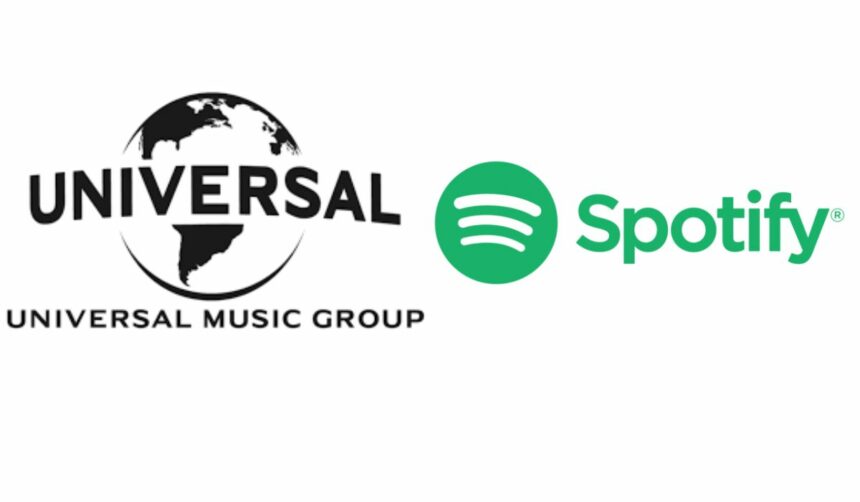Universal Music Group, UMG, has announced its strategic alliance with the global streaming music provider, Spotify.
The company disclosed the alliance in a statement on Thursday.
News.ng understands that the company is intensifying its partnership with Spotify following the public dispute between UMG and TikTok, which resulted in the label removing its entire catalogue from the video app earlier this year.
Instead of only being able to stream audio, American consumers will now be able to watch music videos thanks to the UMG agreement.
The firms did not specify which part of UMG’s catalogue would be made available as videos or which well-known performers’ videos would be featured.
Users of Spotify may now access a new “Switch to Video” option from the Now Playing Screen of the app to watch videos. Additionally, you may view the video in full-screen mode by turning your phone to landscape orientation.
Spotify will launch new social media and promotional tools as part of the new deal to assist artists in creating buzz for their upcoming albums.
For example, users will be able to pre-save music before a new release, and UMG artists will be able to offer teases of upcoming tracks.
Just yesterday, K-pop superstar BTS’s South Korean agency, HYBE, disclosed that it had extended its 10-year contract with Universal Music Group to include exclusive distribution rights for the musicians’ music.
“Universal Music Group will exclusively distribute physical albums and digital music released by labels under HYBE to the global market for the next 10 years,” HYBE said in a Korean-language statement.
The deal applies not only to “existing labels but also to new labels to be incorporated under HYBE” in future, it said.
News.ng earlier reported that Spotify revealed its intentions to allow music videos, stating that it would test the feature in beta in 11 specific locations in March.
The U.S. was not one of those markets at the time.
The business stated that instead, Brazil, Colombia, Germany, Indonesia, Italy, Kenya, the Netherlands, Poland, the Philippines, Sweden, and the United Kingdom would support the feature.










